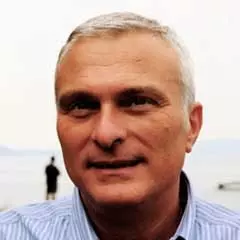
The Supreme Court: the principle applies even if the patient's life is at risk.
by Steno Sari — A sensational ruling by the Court of Cassation, which puts to rest the doubts and fears of medical practitioners regarding Jehovah's Witnesses' dissent to blood transfusions.
Judgment 29469/2020 was discussed on 19 March 2020 in a webinar held at the Risk Management Forum, organised by the Società Italiana Medico Giuridica (Italian Medical and Legal Society). The case dates back to 2004 and concerns a woman giving birth who had refused blood transfusions both verbally and in writing.
Following a haemorrhage, the woman was forcibly subjected to seven blood transfusions. The Court of Milan rejected the woman's claims for compensation and the Court of Appeal upheld the decision.
On 23 December 2020, after fifteen years of judicial process, the Court of Cassation overturned the two judgments, agreeing with the woman and confirming that all patients have the right to decide and choose about medical care and health treatments that conflict with their conscience and religious beliefs.
The principle of law set out by the Court of Cassation is particularly important: "Jehovah's Witnesses, who assert their right to self-determination in matters of health treatment in order to protect their freedom to profess their religious faith, have the right to refuse blood transfusion even if their life is in danger".
"The right to self-determination," says Giaime Guizzi, advisor to the Court of Cassation, "includes refusal to what is specified in advance. In this case the validity is unequivocal and current even at the moment when the danger occurs". Even when dissent is of a religious nature it is an inviolable right and indeed, the councillor added, this aspect fully meets the concept of the secularity of the State, which cannot be indifferent to the religious phenomenon.
At the end of the session, lawyer Nardi, defending the applicant, stressed that refusal of blood transfusion has nothing in common with euthanasia, while Prof. Macrl, of MelCo, concluded that "the ruling (29469/2020) as a principle of self-determination applies even when faced with a real danger to the patient's life and at the same time entails the doctor's duty to abstain. Even in the face of a religious choice, the right to self-determination is not subject to any balancing act".
The Court of Cassation put an end to a thorny issue that has touched on ethical, medical and legal aspects over the years. The right to self-determination in health matters and religious freedom are two constitutional principles that must not be balanced, but protected and applied in full. With this ruling by the Supreme Court and now with Law 219/2017 (law on bio-declaration) there seems to be no more doubts: by carrying a prior, documented and written declaration (DAT) in which their will to refuse blood transfusions emerges even in the event of danger to their life, Jehovah's Witnesses' refusal to receive blood transfusions must be respected even if they were unconscious.
Article published on Libero on 24 March 2021 and republished with permission of the author.





